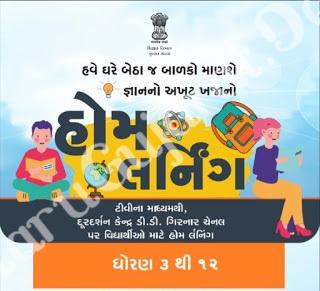LEARNING OUTCOME OF JULY MONTH STANDARD 1 TO 8
Many new efforts are made at the national and state level with the aim of providing quality education to the students studying in schools, all of which aim to develop educational quality and achieve a good achievement level among the school students through the overall evaluation of the students.
By making a definite plan of development, they can be upgraded, but through observation, it is mostly seen the opposite of thinking, it is often seen that 25% of what teachers are told and taught during training is also available in their schools. They do not share and adopt the traditional teaching style, they do not understand that different methods of teaching strengthen the quality of teaching and its development, as well as opportunities for students to learn in a fear-free and enjoyable environment through well-planned academic processes. Seeing more.
Learning is actually a continuous and widespread lifelong process. According to Woodworth, “Learning is the process of development” in the last three decades by the literature on education for all (EFA). Emphasized the quality of education. This was considered from the point of view of nomination, stay and achievement. Apart from this, the desirable features of the learners, learning process, educational facilities, learning materials, subject material, administration and management and learning reward were also included. To improve the quality of education under the Sarva Shiksha Abhiyan and the Right to Free and Compulsory Child Education Act
Focused on continuously. Quality has been included as a major goal in all national curriculum frameworks and other important government initiatives developed by the National Council of Educational Research and Training (NCERT). It envisages that all children have access to fundamental learning opportunities, as well as opportunities to acquire all the transferable skills necessary to become a global citizen. It calls for setting goals that are clear and measurable. Therefore, it is necessary to inform the national and state educational bodies within the educational system how well the system is working on the decisions taken by the administrators, planners and policymakers. Various educational surveys conducted at the national and state levels are initiatives in this direction. Apart from this, various partners at the school and community level also in the direction of quality improvement in education
Play an important role. According to the recent Global Monitoring Report (GMR-2015), there has been an effective improvement in ‘access to education’ in developing countries including India. However, quality is still a cause for concern. Various Achievement Surveys conducted in India like ASER have reported wide disparities in the achievement of basic skills of students in various states. This has also been confirmed by the National Achievement Survey of Class-3 (MHRD / 2014).
The Sarva Shiksha Abhiyan reports of the Joint Review Mission (JRM) conducted in the last few spots of rain also mention that despite the appointment of teachers, timely supply of educational resources, and regular monitoring by the States and Union Territories There is also a gap in the level and expected level of learning of children. This report noted a decline in children’s reading levels and mathematical skills, which is a major concern of the present day. In view of this concern, the way quality is defined as the ‘reward of learning’ (which is to be attained by all), especially reading, mathematical ability and basic life skills is very important.
The Twelfth Five-Year Plan emphasizes the Baniu Yadi learning (learning) as a key goal of primary education, as well as regular assessment of learning to achieve quality objectives. This is also in line with the goal of sustainable development and the recommendations of GMR-2015.
Thus, it is necessary to monitor quality through assessment of learning outcomes at regional, national and international levels. Also, it is necessary that grassroots partners such as parents and community members should be vigilant. The system is aware of the feedback received from the partners and becomes accountable to the partners. Based on this, appropriate steps can be taken to improve the system. Often teachers are not clear about what type of learning is necessary and what are the parameters by which it can be measured. They consider the textbook as a full course and evaluate it based on the questions given in the lesson. They do not take into account the differences in the context of the curriculum and different theories of teaching.
Contextual variations in reading materials and variations in the learning technique adopted are generally not taken into account, as there is no criterion for their assessment.
The learning reward of each classroom is not only helpful to teachers in adopting desired methods of education, but also to other partners, such as- mentors, parents, school management committee members, community and state-level education officials to ensure quality education Also make him responsible and responsible for his role. Clearly defined learning outcomes, ensuring the responsibilities and responsibilities of various partners, and giving directions
